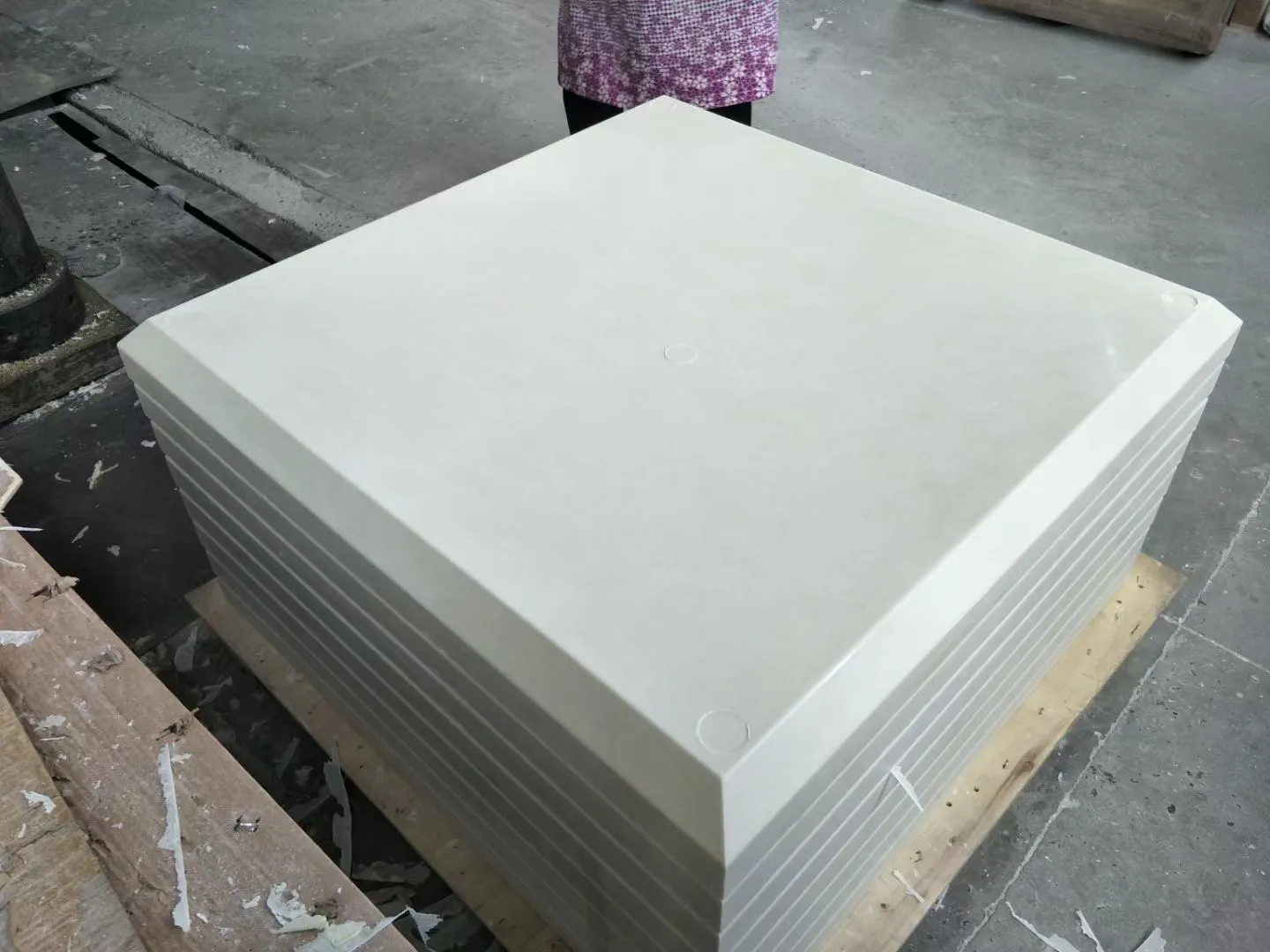loading...
- No. 9, Xingyuan South Street, Dongwaihuan Road, Zaoqiang County, Hengshui, Hebei, China
- admin@zjcomposites.com
- +86 15097380338
- Welcome to visit our website!
fiberglass tank
The Versatility and Benefits of Fiberglass Tanks
Fiberglass tanks have become a cornerstone in various industries, recognized for their strength, durability, and resistance to corrosion. From water storage to chemical processing, these tanks have carved out a significant niche due to their unique properties.
What is a Fiberglass Tank?
Fiberglass tanks are containers constructed from fiberglass-reinforced plastic (FRP). This composite material is created by combining glass fibers with a polymer resin, resulting in a lightweight yet incredibly strong structure. The manufacturing process involves layering strands of glass fiber with resin, which is then cured to form a solid tank. The outcome is a product that boasts a high strength-to-weight ratio, making it ideal for storage and transport.
Advantages of Fiberglass Tanks
1. Corrosion Resistance One of the most significant advantages of fiberglass tanks is their resistance to corrosion. Unlike metal tanks, which can rust and deteriorate when exposed to certain chemicals or moisture, fiberglass can withstand a variety of harsh substances, making it perfect for chemical storage.
2. Lightweight Fiberglass tanks are considerably lighter than their metal counterparts. This feature facilitates easier installation and transportation, reducing labor costs and making it possible to relocate tanks with minimal effort.
3. Longevity The lifespan of fiberglass tanks is typically longer than that of other materials. Properly maintained fiberglass tanks can last several decades without significant degradation, which means lower replacement and maintenance costs over time.
4. Customizability Fiberglass tanks can be fabricated in various shapes and sizes, tailored to meet specific requirements. Whether for residential water storage, industrial applications, or agricultural uses, fiberglass tanks can be custom-designed to fit the needs of any project.
fiberglass tank

5. Environmentally Friendly As sustainability becomes more critical, the environmental impact of materials is under scrutiny. Fiberglass tanks are less harmful to the environment than many alternatives, as they do not leach harmful substances into the ground or water over time.
Applications of Fiberglass Tanks
The versatility of fiberglass tanks lends them to a wide array of applications across multiple sectors
- Water Storage In residential and agricultural settings, fiberglass tanks are often used for rainwater harvesting and irrigation. Their capacity to hold large volumes of water makes them ideal for regions that rely on water conservation.
- Chemical Processing Industries that require the storage of acids, bases, or other corrosive substances benefit from fiberglass tanks due to their chemical resistance. They can safely contain hazardous materials without fear of degradation.
- Wastewater Treatment Many wastewater treatment plants employ fiberglass tanks for their durability and ease of cleaning. These tanks hold sewage before treatment, relying on their corrosion-resistant properties to ensure effective processing.
- Fuel Storage Fiberglass tanks are also used for fuel storage, especially in situations where ground contamination is a concern. Their non-corrosive nature prevents chemical leakage into the environment.
Conclusion
In summary, fiberglass tanks offer a multitude of benefits that make them an excellent choice for a variety of storage needs. Their corrosion resistance, lightweight nature, longevity, and customizability appeal to industries ranging from agriculture to chemical processing. As environmental considerations grow, the use of fiberglass tanks is expected to continue rising. Their versatility and reliability ensure that they will remain a vital resource in the quest for effective and sustainable storage solutions.
-
The Rise of FRP Profiles: Strong, Lightweight, and Built to LastNewsJul.14,2025
-
SMC Panel Tanks: A Modern Water Storage Solution for All EnvironmentsNewsJul.14,2025
-
GRP Grating: A Modern Solution for Safe and Durable Access SystemsNewsJul.14,2025
-
Galvanized Steel Water Tanks: Durable, Reliable, and Ready for UseNewsJul.14,2025
-
FRP Mini Mesh Grating: The Safer, Smarter Flooring SolutionNewsJul.14,2025
-
Exploring FRP Vessels: Durable Solutions for Modern Fluid HandlingNewsJul.14,2025
-
GRP Structures: The Future of Lightweight, High-Performance EngineeringNewsJun.20,2025
